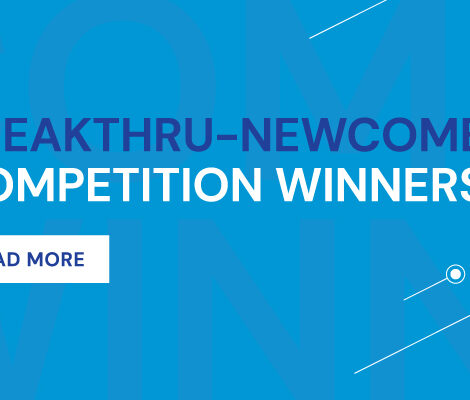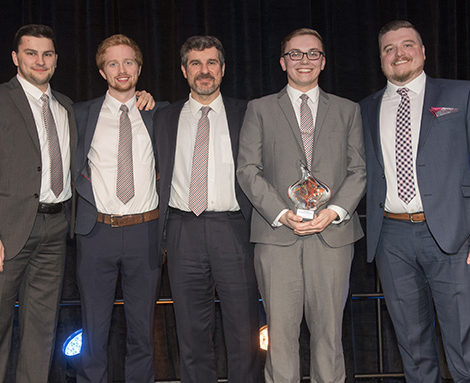- 1 mars, 2011
- Percée
- Comments : 0
Breakthru Keynote Speaker – Refusing To Take No For An Answer
By Jennifer Campbell – Telegraph Journal | link to original article
When Clarissa Desjardins was starting out in the business world, she had to steal a form from the technology transfer office of McGill University.
The staff in the office pooh-poohed the 20-something PhD student, who insisted to them that she had an invention. They told her she probably didn't.
Fast-forward a couple of decades: The Moncton native has gone on to found two million-dollar companies and is now working in the field of medical advocacy and education while keeping her fingers in the entrepreneurial pie.
Desjardins began her career after she finished her PhD at the Montreal Neurological Institute.
« I finished my PhD, bought a briefcase and started peddling my business plan, » the feisty 44-year-old now says.
While working her PhD, she had made what she calls « a small discovery » – in essence a research tool she invented for her own purposes that she then realized could be commercialized.
« I formed a company based on that, » she says, of Advanced Bioconcept, which she founded at the age of 26 after successfully convincing her McGill keepers that she did in fact have a valuable invention.
Then she went about finding investors to support her plan – no easy task. She ended up turning down a $2-million offer because something told her it was wrong and ,in the end, went with angel investors who ponied up $300,000. It was the right decision, she says.
The invention? Creating a better kind of peptide. Peptides are small proteins and to conduct her research, she, like many other scientists at the time, had to use radioactive peptides in applications such as cell tagging, cellular imaging and flow cytometry, a standard application in hospitals that is used to count cells or receptors on cells for patients – white cell counts and red cell counts, for example.
« Radioactive peptides are very standard and I was horrified that I had to expose myself to radioactivity, » she says. « So I had a very simple and naïve idea which was, « Why not just replace the radioactivity with fluorescents?' At the time, all kinds of fluorescent probes were coming out that you could link to peptides, so there was a technical challenge that we overcame and that formed the basis of a unique patent and our idea that we could make dozens and dozens and sell them to the world. »
They did just that – packaged the peptides in little research kits – and the business was a tremendous success story. Within four years, it was purchased by NEN Life Sciences, a U.S. company that was soon after bought out by reagent giant Perkin Elmer in 1998.
« I made a lot of money for our investors, » Desjardins says.
But there was no rest for the young businesswoman. She went on to found Caprion Pharmaceuticals, where she spent 10 years and which continues today in two forms. Part of the company, now known as Caprion Proteomics, was sold to a private equity firm and the other part, the result of a merger with Ecopia Biosciences, and now known as Thallion Pharmaceuticals Inc., is listed on the TSX.
She remains a shareholder in the latter company, which now has a phase II drug for E. coli shiga toxin, the toxin secreted by the bacteria that caused, for example, the Walkerton crisis.
« We're developing the only potential antidote against that toxin, » Desjardins says.
But she's no longer involved in the running of the company. Today, she's the executive director of the Centre of Excellence in Personalized Medicine, a non-profit organization dedicated to personalized medicine and the idea of making medicine more efficient and cheaper.
Will she finish her career there? Not likely.
« Once an entrepreneur, always an entrepreneur, » Desjardin says with a laugh.
« I love what I'm doing now; it's wonderful, but I always have my eye out for that next great opportunity. »
When she gives the keynote address to the finalists in the New Brunswick Innovation Foundation's Breakthru business plan competition at a Fredericton awards gala on March 16, Desjardins will tell the story of her first startup.
« I always say that first $300,000 that I raised (for my first company) was way more difficult than the $35 million that I raised for my second company, » she says. « I hope they'll recognize themselves in my story, because I think all entrepreneurs go through sacrifices and struggles and people do eventually make it and it's worth it. »
Desjardins lauded the innovation foundation for hosting the competition, which has a total of $285,000 in cash investments and professional services up for grabs by six finalists.
« In my day, if I'd had that first idea at an New Brunswick university, I doubt it would have been able to be developed. There was no venture capital, no angel investors. Whereas now, because of the N.B.
Innovation Foundation, there are dozens of little startup companies just like mine and I think that's fantastic. I really believe in it. »
Second in a series about innovators to be honoured at the New Brunswick Innovation Foundation Breakthru gala on March 16 in Fredericton. Tickets for the are available at www.nbif.ca

